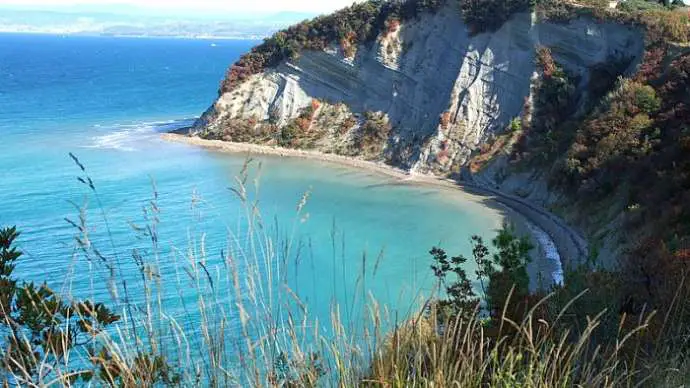STA, 12 January 2020 - The Slovenian part of the Adriatic Sea has not been spared from the impact of climate change in recent decades, with the worst consequences including bleaching and die-off of corals, as well as the arrival of non-native species due to tropicalisation. Seaside wetlands are also expected to gradually disappear due to the rising sea level.
Presenting the situation at Tuesday's virtual lecture, marine biologist Lovrenc Lipej said that the consequences of climate change were already causing concrete problems in the Slovenian territorial waters.
Lipej, who works in the Marine Biology Station in Piran, pointed to the damage done to the cushion coral, a stony coral that forms the only true coral reefs in the Mediterranean Sea.
It is an endangered species that may be found in the Strunjan nature reserve, and is important due to its role of bio-architect, as it provides housing to various marine organisms, thus contributing to biodiversity.
This coral is sensitive to high temperatures, which may cause bleaching. This is a recoverable state, but in the worst-case scenario it causes die-offs.
Both occurrences have already been observed in Slovenia, where seawater temperature is not as problematic as the fact that relatively high water temperatures (up to 26 degrees Celsius) persist late into the autumn, Lipej noted.
What is more, due to tropicalisation, non-native species are expanding towards the north of the Adriatic Sea. A number of such species have been observed in the Slovenian sea in recent years, including the eyespot puffer and the bluefish.
In addition to environmental damage, these species may also cause economic damage, as the bluefish preys on the mullets and other commercial fish species, he added.
Due to the rising sea level, it is expected that certain wetlands along the Slovenian coast will become submerged, including the Sečovlje Saltworks and the Škocjanski Zatok nature reserve.
Biodiversity is expected to be affected there as the areas serve as nesting grounds for certain bird species.
According to Lipej, there are also issues that experts cannot attribute to climate change with certainty, such as the vanishing of seagrass beds and meadows.
He added that the Marine Biology Station was looking for possible solutions, such as repopulation of seagrass beds, growing young corals in laboratories, precise monitoring and elimination of non-native species and measures for balanced exchange of fresh and sea water in lagoons.






